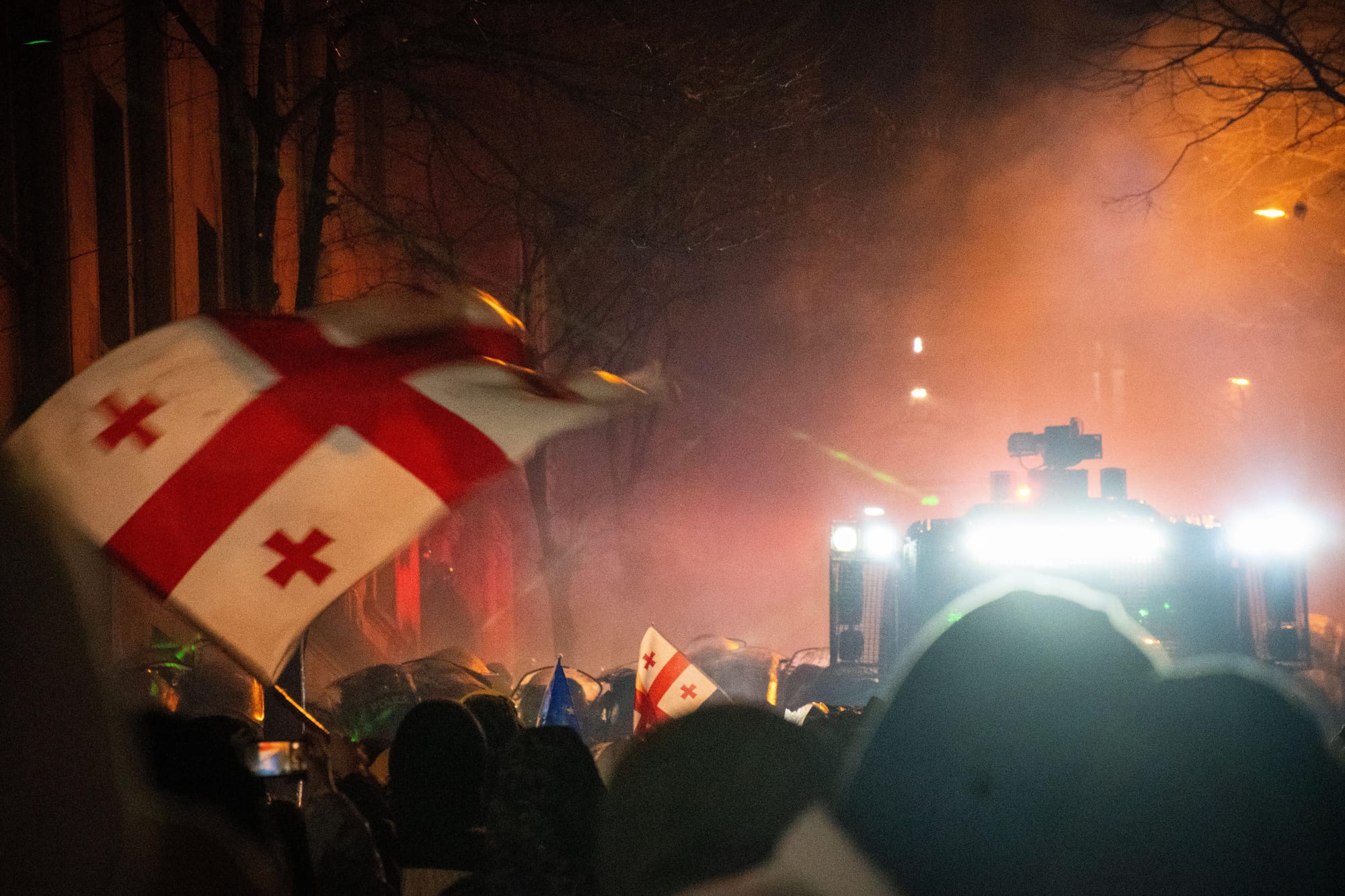Georgian protests surpass 100-day milestone

Rustaveli Avenue, known as the ‘political heart’ of Tbilisi, has witnessed its fair share of anti-government protests over the years. But for the past six months, the Georgian capital has been the site of historic protests.
In October, tens of thousands took to the street after the ruling Georgian Dream party claimed victory in a parliamentary election riddled with voting irregularities. The real kicker came on 28 November, when Prime Minister Irakli Kobakhidze announced he was suspending EU accession talks until 2028. Since then, protesters have taken over Tbilisi’s main thoroughfare, calling for new elections and the release of political prisoners. On 7 March, the protests reached a record-breaking 100 uninterrupted days.
Despite waves of new laws to deter the protesters – including banning fireworks and facemasks to issuing eye-watering fines – students, academics, civil servants, shopworkers, actors and other civilians are taking part in the nightly ritual of blocking Rustaveli and roads in other major cities to make their voices heard. Many show up holding placards that read ‘Fire the oligarchy’, ‘Down with the rotten Russian Empire’ and ‘Freedom for the prisoners of the regime’.
Public anger in Georgia has been building for nearly a year. Last May, lawmakers passed the ‘foreign agent’ bill which requires all non-governmental organizations (NGOs) and independent media that receive more than 20 per cent of their funding from foreign donors to register as ‘organizations acting in the interest of a foreign power’. This was followed in September by the passing of the ‘family values’ bill, which prohibits same-sex marriage, adoptions by same sex couples and gender-affirming treatments. Government critics say the laws are strikingly similar to repressive Russian legislation that has been progressively expanded to silence NGOs, media, activists and political opponents.
The recent protests have been largely peaceful, but the authorities have been accused of deploying increasingly violent dispersal tactics, including arbitrary detention and torture by government-affiliated thugs – titushky – leaving hundreds reportedly injured. The Georgian Young Lawyers’ Association (GYLA), one of the country’s leading human rights watchdogs, estimates there have been around 500 administrative detentions and 62 politically motivated criminal prosecutions since the protests began.
‘We want people in Europe, Britain and the United States, to understand what is going here and not to recognize this government of oligarch Ivanishvili,’ says Sophie Shamanidi, a professor at Tbilisi State University, who has helped coordinate some of the protests. ‘We cannot step back. Some of us have three, four or more fines, which means that we have to pay 20,000 lari or more (around $7,200 USD) but despite this fact, despite the cold weather, people do not give up.’
It’s unclear how much longer the protests will continue, but Shamanidi believes Georgians are firm in their resolve. ‘This is something unique because the history of independent Georgia does not remember such long protests. Let’s hope that good overcomes evil.’
📰 Get the context on Georgia in our latest Country Profile
👉 Follow the work of Civil Georgia and the Georgian Young Lawyers Association (GYLA) for coverage and analysis of the ongoing pro-democracy protests
✅ Learn the names and stories of some of the 50 political prisoners detained by the regime in Georgia since November 2024
✊ Read more about the growing youth movement on the streets of Tsibili
Like what you've read? Support us with a tip.
Are you a freelancer? Pitch us a story.
Looking for more? Listen to our podcast The World Unspun
Shop ethical goods at our very own Ethical Shop
Subscribe to New Internationalist magazine and get Currents absolutely free!

